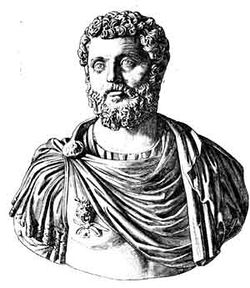Edict of Milan
The Edict of Milan was a proclamation that established religious toleration for Christianity within the Roman Empire. It was the result of a political agreement concluded in Mediolanum (modern Milan) between the Roman emperors Constantine I and Licinius in February 313.
The Edict of Milan gave Christianity in general a sort of legal status. It provided some reprieve from persecution imposed upon Christians in assembly and the Church.[1].

Rome had outlawed private religion:
"Severus returned victorious from having vanquished the kings who had taken part with Nigar against him. He published his cruel edicts against the Christians in the year of Christ 202, the tenth of his reign. But the general laws of the empire against foreign religions, and the former edicts of several emperors against the Christians, were a sufficient warrant to many governors to draw the sword against them before that time; and we find that the persecution was very hot in Africa two years before, under the proconsul Saturninus..." [2]
Christianity did not become the state church of the Roman Empire until AD 380 with the Edict of Thessalonica. By then there were large number of what might be called "instant Christians" who had converted to forms of Christianity designed by Constantine and men like Ambrose and formed a parallel form of Christianity that did not conform to the sound doctrines of Christ nor heed the warnings of the apostles and became the forerunner of the Modern Church. for his version of Christianity under their binding authority. “As guardian of Constantine’s favored religion”, certain churches and bishops were, “given legal rights and large financial donations.”[3]
- ↑ Persecution began with jealousy and envy with the same spirit seen in the modern cancel culture but took on a legal status with the Christian conflict between private religion and public religion.
- ↑ The Lives of the Saints. Volume VII: July. 1866. Rev. Alban Butler (1711–73).
- ↑ Funk & Wagnalls New Encyclopedia Vol. 7 p.149